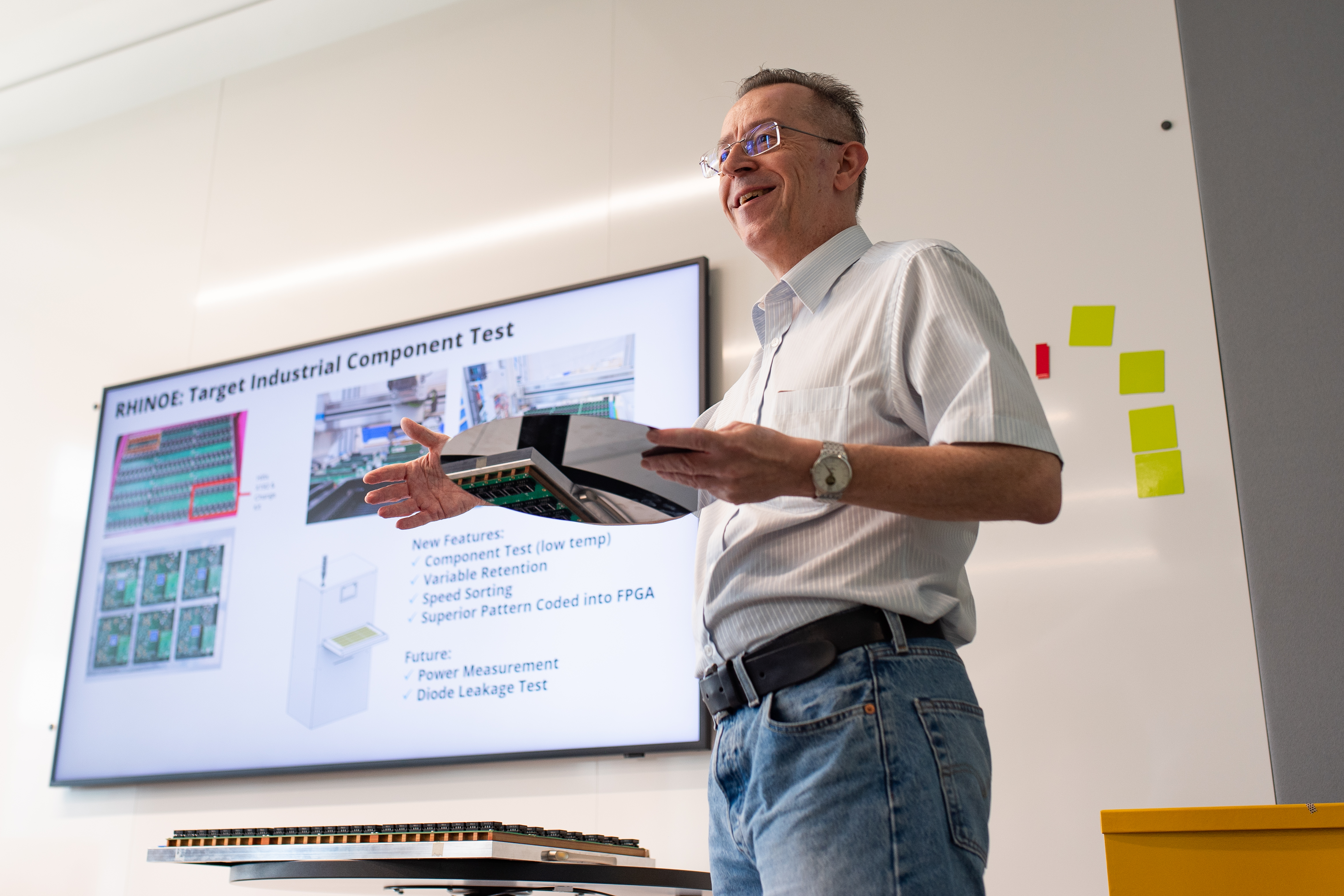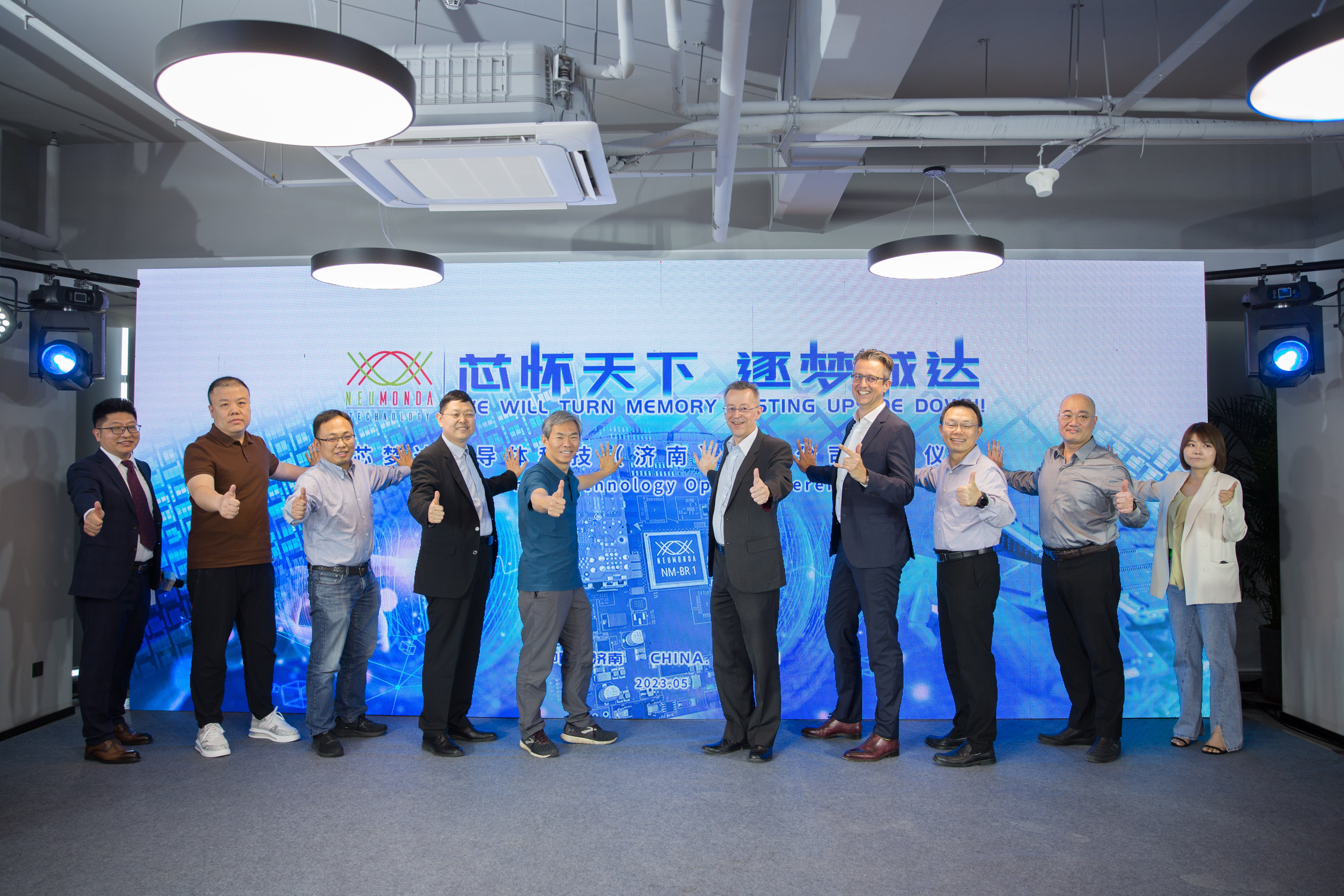Thriving in Innovative Environment

Eighteen years ago, Peter Poechmueller, a German engineer with management skill and experience, embarked on a journey to China. Initially, Poechmueller's arrival in China was motivated by a desire for adventure.
With decades of expertise in microelectronics and driven by the need to be innovative, the problem-solver for German industrial giant Siemens was often sent to locations where problems needed fixing. He thrived in environments where each day brought new challenges. For him, the excitement lies in the unknown. When a corporate shift resulted in a reassignment, Poechmueller regarded it as an opportunity and volunteered to go to China.
Over time, Poechmueller grew professionally in China and built a work and personal life here. He met his wife, started a family, and gradually found himself rooted in Chinese culture. "I thought I'd be in China for two years at most, but it ended up being my longest assignment ever. I don't regret it at all," he told Science and Technology Daily (S&T Daily).
Currently, he is a professor at the School of Microelectronics and the CEO of Neumonda Technology. His experiences across Asia, Europe, and the U.S. have shaped his unique approach to technology and leadership, which offers insights into semiconductor development and cross-cultural collaboration.

A career built on passion and adaptation
Poechmueller's interest in engineering began at an early age. Growing up in the 1980s, without easy access to computers, he took matters into his own hands. "I built my own computer, programmed my own games, and modified my TV to connect to it. That's how I got into this field," he told S&T Daily. This hands-on approach laid the foundation for a career spanning over 30 years in semiconductor technology.
When asked about his experiences working in diverse environments, Poechmueller emphasized how this diversity shapes his perspective, "Every culture thinks it's the best, but they all achieve their goals in different ways. This experience has relaxed me and made me more open-minded."
This openness plays an essential role in the way he deals with challenges. He appreciates the meticulous nature of German engineering, which prioritizes long-term planning, yet he recognizes the value in the speed and flexibility of Chinese engineers. "Sometimes the best approach is a combination — planning like a German, but being pragmatic like a Chinese engineer."
"Highly efficient, flexible and pragmatic are the most impressive parts of Chinese culture," he said.
Shaping leadership through cross-cultural experiences
Leading cross-cultural teams in global R&D projects is not an easy job. At first, Poechmueller noticed that Chinese engineers were often reluctant to express difficulties or ask for help, in contrast to the open communication encouraged in his own culture. Such differences can lead to misunderstandings. Through years of experience, he learned that effective management with global vision requires mutual understanding and the ability to bridge gaps in communication.
According to Yin Heguo, his long-term Chinese business partner, Poechmueller has both the rigorous work style of the Germans and the wisdom of the Chinese, and he has a deep understanding of Chinese culture. "In my eyes, he is the 'Bethune' of China's semiconductor memory industry," said Yin.
Poechmuelle's experiences make him fully aware of the role of adapting his management style to tailor the unique needs of each team. Whether leading large organizations like Siemens or smaller companies, he has consistently attached great importance to the need for a broad skill set and flexibility. According to this German engineer, in big companies, people have a narrow focus with extensive infrastructure support. People will gain speed and satisfaction from working in smaller companies. "I find life in smaller companies more fulfilling because you see the direct impact of your work," he said.
The evolution of semiconductor technology
In terms of his involvement in memory product development, Poechmueller noted that the semiconductor industry has seen rapid changes, especially in Dynamic Random Access Memory (DRAM). "What's striking is not just the technology, but the economic aspect behind it. This industry fosters a tough, dynamic environment where only a few players survive."
As the industry develops, the integration of AI has become a game-changer. Poechmueller sees the significance of AI in semiconductor development. AI requires high-speed communication, which has driven changes in DRAM. Today, AI memory must handle thousands of input/output operations while minimizing power consumption. Poechmueller said that, "Theory behind this has existed for 30 years, but we didn't have the computational power to make it practical. Now, with advances in technology, AI is transforming the industry."
Poechmueller joined Shandong University in 2018 and he saw it as an opportunity to advance semiconductor research. "I'm an engineer who focuses on practical aspects. I joined the university for the resources to develop new technology and pay back to the society," he said.
In 2013, he was presented with the Chinese Government Friendship Award, which is the highest honor for foreign experts who have contributed to social development and international cooperation. As he puts it, "I am honored. But more importantly, this is my work to make the world a little bit better and safer."






